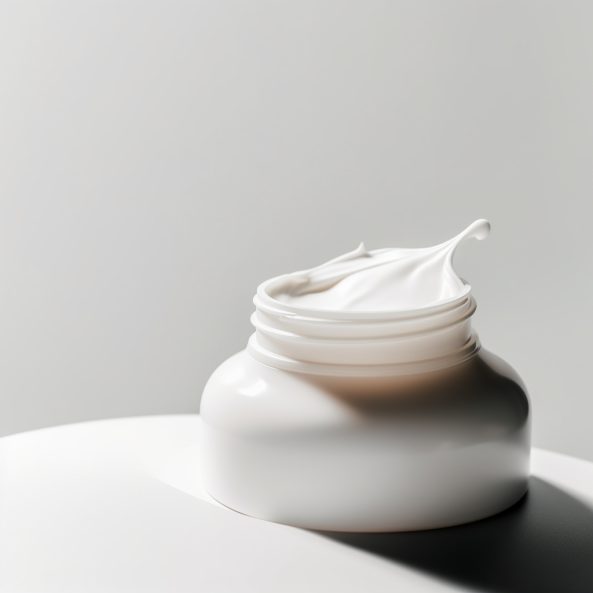How to Choose a Good Moisturizer?
Choosing the right moisturizer for your skin can be a daunting task. The market is awash with countless products, each promising to hydrate, protect, and nourish your skin. So, how do you make an informed choice? Let’s break down the evidence behind effects of moisturizers, debunk marketing myths, and learn how to choose the best moisturizer for your skin.

The moisturizer misconception
The term “moisturizer” is a creation of advertisers, lacking a proper dermatological definition. Rather than pumping water into the skin, good moisturizers work by bolstering the skin’s barrier function. This involves factors like skin lipid composition, skin’s pH (also known as acid mantle), and the structure of corneocytes (non-living skin cells in the skin’s top layer). A top-notch moisturizer addresses several of these aspects, strengthening the skin as opposed to simply “quenching the skin’s thirst.”
The benefits of moisturizers: what to expect
Once applied, moisturizers deliver tactile and visual changes to the skin. They enhance the skin’s initial feel, appearance, and its overall function post-application. Your skin’s water content increases immediately after application, and the surface becomes smoother by filling in spaces between skin flakes.
Moisturizers can fortify a weakened skin barrier, reducing the skin’s susceptibility to harmful substances and minimizing the risk of sensitivity and skin conditions like eczema. They’re also beneficial for dry and scaly skin, aiding in symptom improvement.
By supporting the skin barrier function, moisturizers may contribute to a healthy skin microbiome, thus enhancing your skincare regime against acne and clogged pores. A healthy skin barrier is vital for an even skin texture and effective photodamage repair. However, don’t expect anti-aging results from a moisturizer unless it contains special anti-aging actives like retinoids or peptides.
However, don’t expect anti-aging results from a moisturizer unless it contains special anti-aging actives like retinoids or peptides.
What ingredients to look for in a moisturizer?
Humectants
When choosing a moisturizer, ensure it contains humectants. Humectants are substances that attract water molecules and bind with them, essentially inviting them to stay with your skin. Good humectants include glycerin, urea, sodium PCA, beta-glucan, acetamidoethoxyethanol, peptides. However, remember that their primary effect is attracting water, not the fancy properties like anti-aging they’re often advertised for.
Emollients and occlusives
Your moisturizer should also contain emollients and occlusives. These ingredients soften the edges of the skin’s surface cells, making it smoother and more flexible. They also form a film on the skin’s surface to prevent water molecules from evaporating quickly. Examples include different types of oils (plant oils, squalane, mineral oil), waxes, butters (shea butter, cocoa butter), and silicones. Hydrating serums that do not contain emollients might end up leaving your skin dryer – if you don’t follow them with a moistruizer with emollients or an oil.
Skin barrier helpers
Look for special skin barrier helpers like niacinamide, ceramides, low concentrations of lactobionic acid or lactic acid, panthenol, centella asiatica actives and colloidal oatmeal. These ingredients support the skin barrier function beyond simply attracting and retaining water, helping the skin stay resilient, hydrated, and strong over time.
What to avoid in a moisturizer
Avoid potential irritants such as fragrances and essential oils in moisturizers. These can cause low-intensity inflammation in the skin, disrupting its barrier function. Also, to help your moisturizer work even better, avoid long showers and hot water, which can lead to dryness and a weaker skin barrier.
Applying your moisturizer: how much is enough?
The effectiveness of a moisturizer depends significantly on the amount applied. It’s challenging to determine an exact dosage since this depends on the product formula, its texture, and your skin’s dryness. However, studies suggest people tend to apply less moisturizer than optimal, so don’t shy away from being generous.
The type of moisturizer you use also matters. Creams and ointments spread more evenly on the skin than lotions. The packaging can also influence how much moisturizer you use. Research shows people tend to use more moisturizer from a jar than a tube.
Remember, after about 8 hours, half the moisturizer might be gone due to evaporation, rubbing off, or absorption into the skin. If your skin is particularly dry, consider applying a moisturizer 2-4 times a day.
In summary, selecting the right moisturizer is more than just picking a product off the shelf. It’s about understanding your skin’s needs and what different moisturizer ingredients can offer. By considering these factors, you’ll be well on your way to maintaining healthy, hydrated skin.
Choose your products based on actives
WIMJ Search allows you to select skincare products based on what’s inside. Filter products by actives included, and exclude ingredients you don’t want. Check the concentration of ingredients and potential irritants.
Sources
-
The science behind skin care: Cleansers https://pubmed.ncbi.nlm.nih.gov/29231284/
-
A consistent skin care regimen leads to objective and subjective improvements in dry human skin: investigator-blinded randomized clinical trial https://www.tandfonline.com/doi/abs/10.1080/09546634.2020.1751037
-
Ultraviolet radiation and skin aging: roles of reactive oxygen species, inflammation and protease activation, and strategies for prevention of inflammation-induced matrix degradation – a review https://onlinelibrary.wiley.com/doi/abs/10.1111/j.1467-2494.2004.00241.x
Related Articles
Winter Skin Care: Navigating the Chilly Season with Healthy Skin
Let’s dive into understanding winter skin and how to best care for it.
The Dark Side of Lightweight Sunscreens
Do lightweight sunscreens provide enough sun protection? Lightweight sunscreen formulas have a higher risk of not providing the sun protection they promise. Learn more in this article.
Opting for Fragrance-Free Skincare: A Skin-Friendly Choice
Opting for Fragrance-Free Skincare: A Skin-Friendly ChoiceIs the smell of your skincare products hurting your skin? It's a question we often don't think about. Yes, the scents can be nice, but they can also cause problems. About one in three skin issues from cosmetics...
What Does Sensitive Skin Mean and How to Help It?
Discover what sensitive skin truly means. We break down the causes, symptoms, and potential triggers of sensitive skin, and share simple steps to manage and reduce skin sensitivity effectively.
Do You Really Need Custom-Made Skincare?
Custom-made skincare products have become a talking point recently. But are they an essential innovation in skincare or simply a captivating marketing gimmick? This blog post delves into whether personalized skincare truly offers advanced scientific solutions tailored to our unique needs or is it luring us into paying more for seemingly “perfect” products.
Is Skincare A Scam?
Is Skincare a Scam? "Is skincare a scam?", you might wonder after spending $$$ on products that don't work. Or better put, "does the beauty industry turn skincare into a scam?". In many ways, yes - unfortunately. As consumers, we crave innovation, seeking skincare...
Do I Need Sunscreen for Indirect Sunlight?
How often have you heard that sunscreen is key for protecting our skin from the sun? A lot, right? But, does this same rule apply when you’re in indirect sunlight, in the shade or on a cloudy winter day? The answer is yes. Here’s the explanation.
The Ultimate Guide to Sunscreens And Sun Protection
“Understanding why sunscreen is important in skincare is essential for maintaining youthful, healthy skin. Scientists have found that a staggering 80% of externally-caused skin aging is a result of sun damage. The effects? A variety of skincare woes such as pigmentation problems, scarring, and enlarged pores as we age. So, whether you’re dealing with anti-aging, acne, or pigmentation concerns, sunscreen is an irreplaceable part of your skincare routine. And remember, it’s vital for all skin tones – yes, even the darkest ones.”
The Ultimate Guide to Skin Cleansing
Daily skin cleansing is an essential part of skincare, but do we truly understand why we cleanse our skin and how it works? How often should we wash our skin? Let’s dive deep into the world of skin cleansing and clarify the typically overlooked basics.
How Many Steps Do You Really Need for A Good Skincare Routine?
What Steps Do You Really Need for A Good Skincare Routine?Taking care of your skin is more than just a beauty routine - it’s an important part of maintaining overall health. But skincare can be overwhelming, with so many products and steps to choose from. While there...




